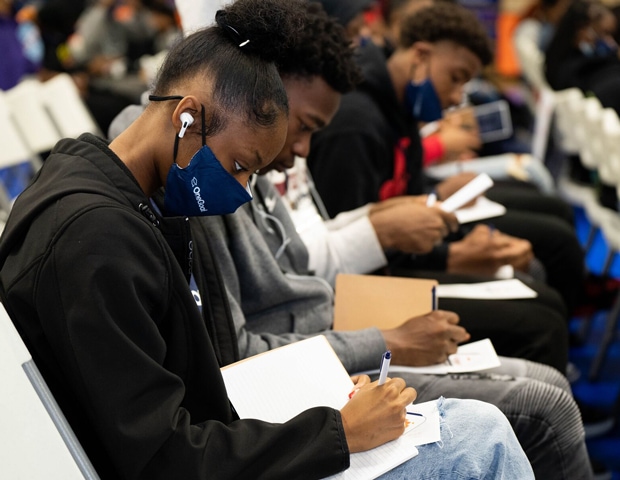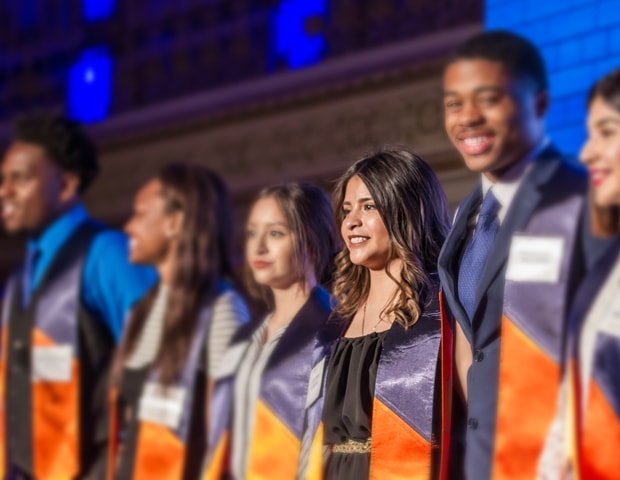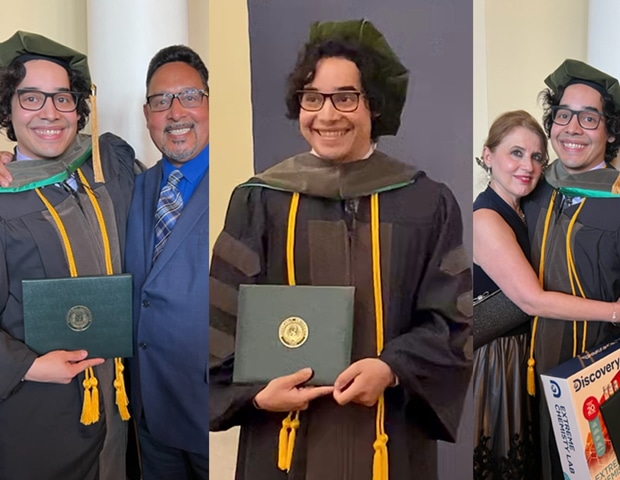“College and career readiness” is a frequently used metric in schools and in the postsecondary access field. But how is readiness defined?
Mercy Ajala’s dream of flying has guided her postsecondary journey into aviation school and flight training. With one semester left before earning her Bachelor’s degree from Southern Illinois University, Mercy reflects on her relentless pursuit of becoming a pilot.
When life puts roadblocks in front of Mercy Ajala, she finds another way, “if I really want something and I’m really adamant about getting it, I never give up.” As a first-generation college student and Nigerian immigrant balancing earning her B.A. in Aviation Management while attending flight school to earn her pilot’s license, Mercy has cleared more than her share of hurdles to reach her dreams.
The First Step in Mercy’s Journey
The OneGoal alumna and EPIC Academy Charter High School graduate set her sights on flight school after earning her Associate’s Degree from Malcolm X College. Working with her OneGoal Program Director, Mercy applied to 13 different schools, learned how to manage her finances as a college student, and ultimately decided that community college was the best first step after high school. “After Malcolm X, I decided I wanted to keep going and started looking at transfer options,” said Mercy. In spring 2023, Mercy will earn her bachelor’s degree from her top choice school, Southern Illinois University, bringing her one step closer to her dream of becoming a pilot.
“My interest in aviation was sparked when I was really young,” said Mercy. On her first trip out of Nigeria, Mercy was mesmerized after catching a glimpse of a woman of color wearing pilot epaulets and stripes. “I asked my parents, ‘who is that? What does she do?’ and they explained to me that she is the pilot; she’s going to fly the plane.” The memory of seeing the female pilot stuck with Mercy. So, when her high school in Chicago introduced “Career Intensives,” a week-long career exploration program that exposes students to unique career experiences while in high school, she jumped at the opportunity to work with Southwest Airlines, “my main goal now is to work for an airline.”
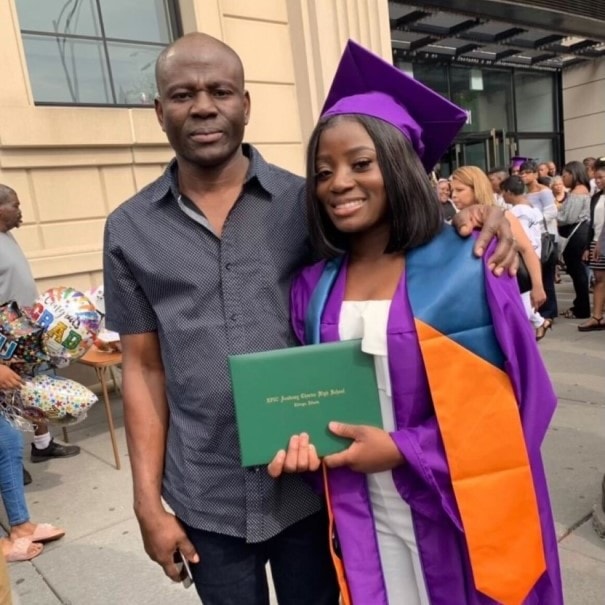
Seeing Herself as a Pilot When No One Else Would
When Mercy entered the aviation program at SIU, she noticed right away that there were no other Black female students in her classes, “there were other women and other Black students, but it was definitely predominantly white male students in all my classes.” After experiencing bullying in high school for her Nigerian heritage and working through other hurdles, Mercy embraced her unique qualities to make a name for herself on campus, “I sit at the front of the class, ask a lot of questions, and show up to open office hours with my professors.”
Despite her determination and positive mindset, Mercy still experienced skepticism in her pursuit to fly, “I had a flight instructor tell me outright that I didn’t belong in the program.” Instead of giving up, Mercy enrolled in a flight training program at Enhanced Aero, a private flight training and rental company that shared an airfield with the SIU School of Aviation. Mercy also helped reinstate the SIU student chapter of American Association of Airport Executives (AAAE), and became a mentee with Sisters of the Skies, a member organization comprised of aspiring and professional Black women pilots. Throughout Mercy’s postsecondary journey, creating connections has helped motivate her, “we talk about the struggles others have in flight training, and it’s amazing for me to meet with different women around the country and know how they navigated the same struggles I’ve had.”
Making Connections and Tapping Resources
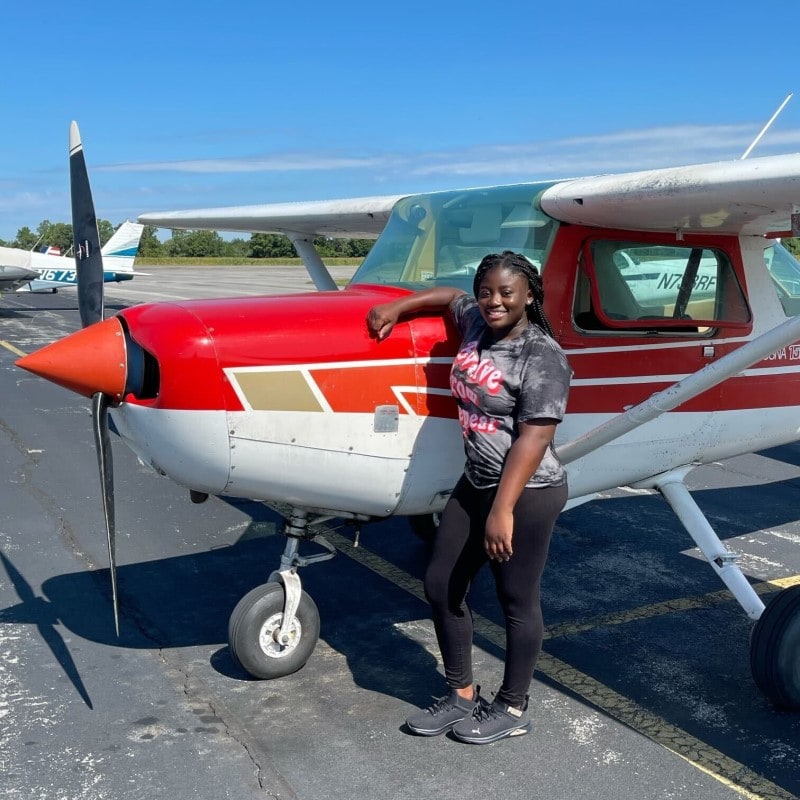
According to Sisters of the Skies, Black women represent less than 0.5% of total professional pilots. Less than 150 Black women pilots in the United States hold Airline Transport Pilot, Commercial, Military, or Certified Flight Instructor Licenses. As a mentor for Sisters of the Skies, Mercy engages regularly with other young aspiring pilots, “it’s not something I had when I started this, so it’s awesome to spend time answering questions and assisting other aspiring Black female pilots. It’s a rare thing, and it’s important.”
Beyond the lack of representation, Mercy explained that the high cost of aviation school is a barrier to most Black and other minority students, “a lot of us are first-generation students, and yes, there is financial aid and scholarships for college, but actual flight training is not cheap and so without the resources and support it can be really hard to pay for it all.” Mercy has worked multiple part-time jobs as a student and leveraged other opportunities like the OneGoal Enrollment Grant, an initiative to distribute $200k in micro-grants to assist OneGoal Fellows and alumni in overcoming barriers to postsecondary persistence and graduation. “It’s a lot to try and navigate, I know that there is money out there, and you have to apply, apply, apply until you get a ‘yes,’” said Mercy.
The Next Chapter in Mercy’s Story
When Mercy walks across the graduation stage in a few short months, she will barely pause before starting the next chapter in her story, “I’m going to be working on my master’s, and hopefully, within a year, I will go from getting my private [pilot’s license] to a multi-engine license and then look for a surveyor job to start out.”
Her ultimate goal is to become an airline pilot. Though, with her degree in Aviation Management, Mercy says serving as an Airport Director or Executive sounds like an exciting career path as well, “as my school’s AAAE chapter President, I’ve met a lot of industry professionals and made a lot of great connections, so I feel like I have some options.”
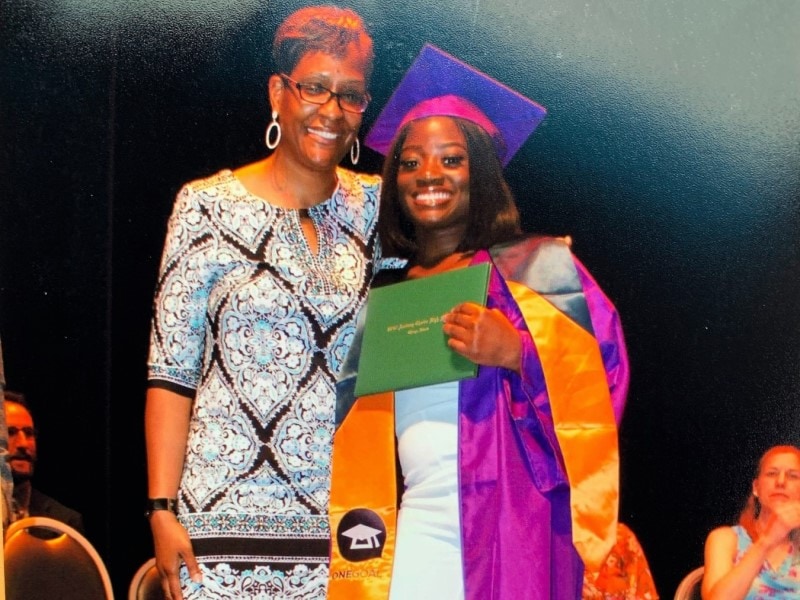
Related Stories
Joining the OneGoal cohort in her school not only led to her achieving a degree, Yesenia is now an advocate for students like her.
Caleb sat down with us for a conversation about his journey, the lessons he learned along the way, and where he’s headed next.



